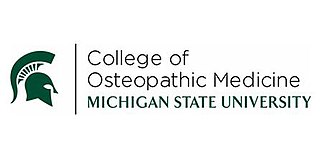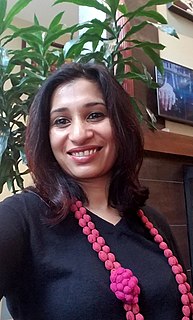Related Research Articles

Linda Brown Buck is an American biologist best known for her work on the olfactory system. She was awarded the 2004 Nobel Prize in Physiology or Medicine, along with Richard Axel, for their work on olfactory receptors. She is currently on the faculty of the Fred Hutchinson Cancer Research Center in Seattle.

William Henry Howell, Ph.D., M.D., LL.D., Sc.D. was an American physiologist. He pioneered the use of heparin as a blood anti-coagulant.
Dame Frances Mary Ashcroft is a British ion channel physiologist. She is Royal Society GlaxoSmithKline Research Professor at the University Laboratory of Physiology at the University of Oxford. She is a fellow of Trinity College, Oxford, and is a director of the Oxford Centre for Gene Function. Her research group has an international reputation for work on insulin secretion, type II diabetes and neonatal diabetes. Her work with Andrew Hattersley has helped enable children born with diabetes to switch from insulin injections to tablet therapy.
Leslie Alexander Geddes was an electrical engineer and physiologist. He conducted research in electromyography, cardiac output, cardiac pacing, ventricular defibrillation, and blood pressure. He discovered and demonstrated precisely the optimal sites on the chest for defibrillation or pacing.
Jeffrey I. Gordon is a biologist and the Dr. Robert J. Glaser Distinguished University Professor and Director of the Center for Genome Sciences and Systems Biology at Washington University in St. Louis. He is internationally known for his research on gastrointestinal development and how gut microbial communities affect normal intestinal function, shape various aspects of human physiology including our nutritional status, and affect predisposition to diseases. He is a member of the National Academy of Sciences, the American Academy of Arts and Sciences, the Institute of Medicine of the National Academies, and the American Philosophical Society.
The American Physiological Society is a non-profit professional society for physiologists. It has nearly 10,000 members, most of whom hold doctoral degrees in medicine, physiology or other health professions. Its mission is to support research and education in the physiological sciences. The society publishes 16 peer reviewed journals, sponsors scientific conferences, and sponsors awards to further this mission.

The Michigan State University College of Osteopathic Medicine (MSUCOM) is one of the two public medical schools of Michigan State University located in East Lansing, Michigan. The college grants the Doctor of Osteopathic Medicine (D.O.) degree, as well as a DO-PhD combined degree for students interested in training as physician-scientists. MSUCOM operates two satellite campuses in Clinton Township and Detroit. The college is accredited by the American Osteopathic Association's Commission on Osteopathic College Accreditation (COCA) and by the Higher Learning Commission of the North Central Association of Colleges and Schools. The World Directory of Medical Schools lists the school as a US medical school along with other accredited US MD and DO programs, including its counterpart Michigan State University College of Human Medicine.

Elizabeth Matilda Tansey is an Emerita Professor of the history of medicine and former neurochemist, best known for her role in the Wellcome Trust's witness seminars. She previously worked at Queen Mary University of London (QMUL).
Elisabeth Gantt is a botanist, known for her work in plant physiology and structure. Born in Yugoslavia, she later immigrated to the United States, where she got her Ph.D. at Northwestern University. Her work mostly focused on photosynthesis, especially that of algae. Today, she is a Distinguished University Professor at the University of Maryland, where she still studies and teaches botany and cell biology, which is a part of the University of Maryland College of Computer, Mathematical, and Natural Sciences. Her work has garnered her the Darbaker Prize from the Botanical Society of America in 1958 and the Gilbert Morgan Smith Medal of the National Academy of Sciences in 1994. Dr. Gantt was inducted into the National Academy of Sciences in 1996. She is also a member of several scientific societies, including the National Research Council, the American Society of Plant Physiologists and the American Association for the Advancement of Science.

Phyllis M. Wise is a biomedical researcher. Most recently, she is currently serving as the inaugural Chief Executive Officer and President of Colorado Longitudinal Study.

Bonnie Anne Berger is an American mathematician and computer scientist, who works as the Simons professor of mathematics and professor of electrical engineering and computer science at the Massachusetts Institute of Technology. Her research interests are in algorithms, bioinformatics and computational molecular biology.

Juanita L. Merchant is an American gastroenterologist and physiology researcher who has contributed to understanding of gastric response to chronic inflammation. She is currently the chief of the University of Arizona Division of Gastroenterology and Hepatology. Merchant was elected to the National Academy of Medicine in 2008, and appointed an inaugural member of the NIH Council of Councils.
Kim Elaine Barrett is a research physiologist, specialising in digestive disorders such as inflammatory bowel disease. She currently serves as Distinguished Professor of Medicine and was formerly Dean of the Graduate Division at University of California, San Diego. As of 2021, she is the Editor-in-Chief of The Journal of Physiology and a Past-President of the American Physiological Society.

Manly Miles was an American zoologist and agriculturalist.

Bhramar Mukherjee is an Indian-American biostatistician, data scientist, professor and researcher. She is the John D. Kalbfleisch Collegiate Professor and the Chair of Department of Biostatistics, a professor of Epidemiology at the University of Michigan. She serves as the associate director for Quantitative Data Sciences at University of Michigan Rogel Cancer Center. She is the Chair elect for Committee of Presidents of Statistical Societies (COPSS) for a three-year term starting 2019.
Leslie Hogben is an American mathematician specializing in graph theory and linear algebra, and known for her mentorship of graduate students in mathematics. She is a professor of mathematics at Iowa State University, where she holds the Dio Lewis Holl Chair in Applied Mathematics; she is also professor of electrical and computer engineering at Iowa State, associate dean for graduate studies and faculty development at Iowa State, and associate director for diversity at the American Institute of Mathematics.
Janet Howell Clark was an American physiologist and biophysicist.
Linda Celida Meade-Tollin is an American biochemist and cancer researcher. In her research at the University of Arizona, she studied DNA damage, angiogenesis, and cancer invasion & metastasis; directed the Office of Women in Science and Engineering there; and was the first female chairperson of the National Organization for the Professional Advancement of Black Chemists and Chemical Engineers (NOBCChE).
Fiona Jean McDonald is a New Zealand physiologist, professor and head of the McDonald Lab and the Department of Physiology at the University of Otago.
References
- ↑ "Bonnie Jean Samuelson". Lansing State Journal. Lansing Michigan. 2 December 2017. Retrieved 4 February 2021.
- 1 2 "Alumni Joel Howell and Linda Samuelson chosen as Spring Commencement speakers" (PDF). Briggantine. Vol. 48 no. 1. Lyman Briggs College. Spring 2016.
- 1 2 3 4 5 Padgett Powers, Melanie (July 2020). "GI Success" (PDF). The Physiologist Magazine. pp. 35–39. Retrieved 4 February 2021.
- 1 2 "Linda C. Samuelson, PhD". University of Michigan Medical School. Retrieved 4 February 2021.
- 1 2 3 "Linda C. Samuelson, PhD" (PDF). University of Michigan Medical School. 2019. Retrieved 4 February 2021.
- ↑ "14 Medical School Faculty Named AAAS Fellows". Medicine at Michigan. Winter 2020. Retrieved 4 February 2021.
- ↑ "Donor Spotlight: Joel Howell and Linda Samuelson". University Musical Society. 15 December 2020. Retrieved 4 February 2021.